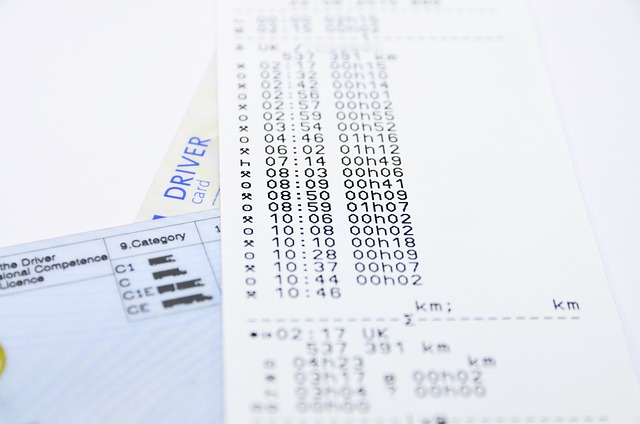Personalized insurance policies for trucking businesses offer tailored risk management, addressing cargo liability, driver health, and operational contingencies with comprehensive coverage. Insurers utilize data analytics and cost-effective strategies to revolutionize protection, providing competitive rates and precise coverage based on unique business needs. By leveraging technology, bundling insurance with expenses, and measuring KPIs, trucking businesses can achieve robust protection without overpaying for low-risk areas, focusing on efficient and safe goods transport.
In today’s competitive landscape, tailored insurance policies offer crucial support for trucking businesses aiming to optimize operations and manage risks effectively. This article delves into the world of personalized insurance, guiding you through essential strategies to mitigate costs without compromising on vital trucking business protection. From understanding policy nuances to implementing effective measures, we provide actionable insights for enhancing risk management while ensuring your fleet’s safety and financial security.
Understanding Personalized Insurance Policies for Trucking Businesses

Personalized insurance policies are tailored solutions that cater specifically to the unique needs of a trucking business, offering more than off-the-shelf plans can provide. These policies go beyond standard coverage by addressing specific risks and requirements inherent in the trucking industry, such as cargo liability, driver health and wellness, and operational contingencies. By understanding their distinct operational landscape, insurance providers can create comprehensive packages that include truck damage protection, liability coverage for accidents involving cargo, and even specialized medical benefits for drivers who spend long hours on the road.
For trucking businesses seeking cost-effective strategies, personalized policies offer a balance between comprehensive protection and financial prudence. By working with insurers who specialize in this sector, companies can access competitive rates while ensuring they have robust coverage in place. This proactive approach to insurance not only mitigates risks but also fosters operational stability and peace of mind, allowing trucking businesses to focus on their core mission: transporting goods efficiently and safely across the nation’s highways.
Identifying Cost-Effective Strategies

In the realm of insurance, cost-effective strategies for personalized policies are a game-changer, especially for businesses like trucking operations that require comprehensive protection. The key lies in understanding and leveraging various factors to optimize coverage while keeping premiums manageable. One effective approach is analyzing the specific risks associated with the trucking business, such as vehicle maintenance, driver safety, and route hazards. By identifying these unique challenges, insurers can tailor policies to address them directly, ensuring that protections are not overly broad or narrow but precisely suited to the needs of the operation.
Additionally, staying informed about industry trends and regulatory changes enables businesses to make informed decisions when negotiating insurance terms. Keeping abreast of technological advancements in trucking, such as fuel-efficient engines or advanced driver assistance systems, can impact risk profiles and lead to more affordable insurance options. These strategies not only enhance protection but also empower trucking businesses to navigate the complex landscape of insurance with confidence and a clear understanding of their coverage.
Implementation Tips for Maximum Protection

When implementing cost-effective strategies for personalized insurance policies, especially for a trucking business, start by assessing your specific needs and risks. Tailor your coverage to include comprehensive liability protection, property coverage for your vehicles, and cargo insurance to safeguard against loss or damage during transit. This level of customization ensures that you’re not overpaying for areas where your trucking operation is low-risk.
Next, leverage technology and data analytics to optimize risk management. Implement telematics systems to monitor driving behavior, vehicle performance, and safety compliance. These insights can help insurers offer more accurate pricing based on real-time data, potentially reducing premiums. Additionally, consider bundling insurance policies with other business expenses, as many insurers offer discounts for combining multiple coverage types. This approach not only simplifies administrative tasks but also secures comprehensive protection at a lower cost for your trucking business.
Measuring Success and Continuous Improvement

Measuring success is a vital aspect of personalized insurance policies for any trucking business protection strategy. Key performance indicators (KPIs) should be established to evaluate the effectiveness of these strategies. These might include reduced claims costs, improved customer retention rates, and increased satisfaction scores from policyholders. By setting measurable goals, insurers can accurately assess their approach and identify areas that require refinement.
Continuous improvement is essential in this context. Regular reviews and data analysis allow for staying agile and responsive to the evolving needs of trucking businesses. It encourages insurers to innovate, adapt policies, and introduce new risk management solutions, ensuring they remain competitive and relevant in the market while providing tailored protections.
Personalized insurance policies offer a tailored approach to managing risks specific to trucking businesses, enhancing their operational resilience. By implementing cost-effective strategies discussed in this article, such as risk assessment, asset optimization, and leveraging technology, trucking companies can achieve optimal coverage while minimizing expenses. Continuous improvement through regular policy reviews ensures that these measures remain relevant and aligned with evolving business needs, ultimately strengthening the financial security of the trucking business protection ecosystem.
